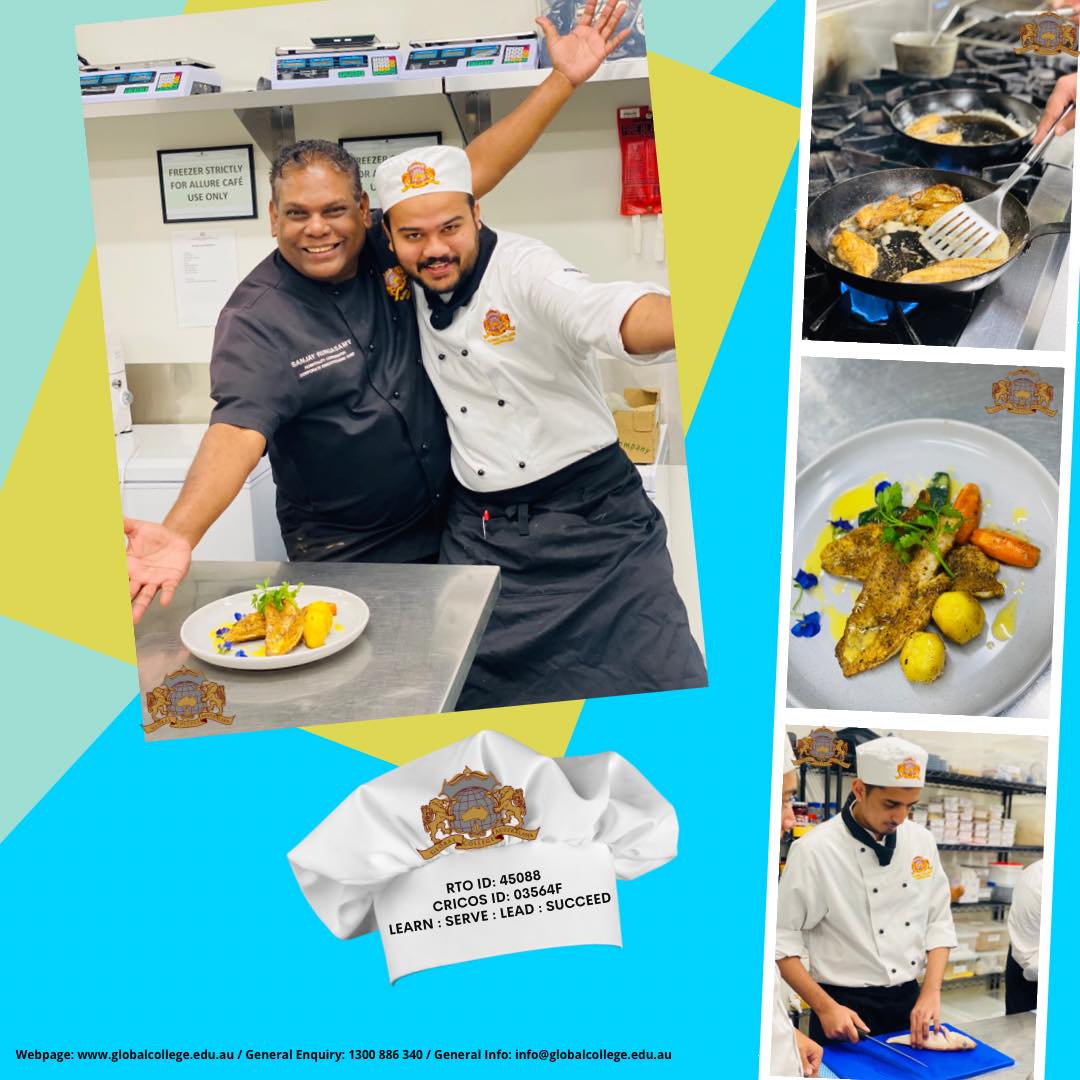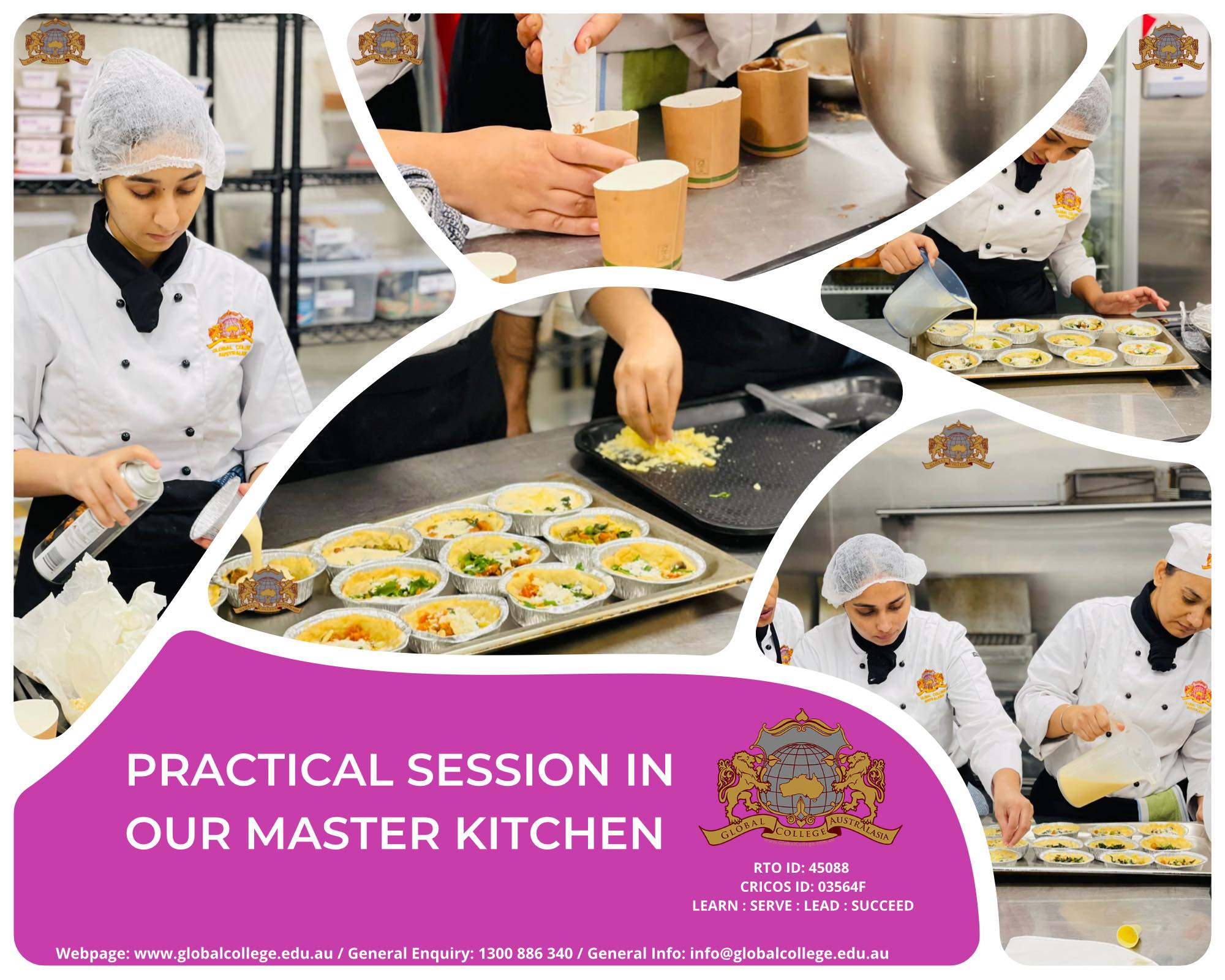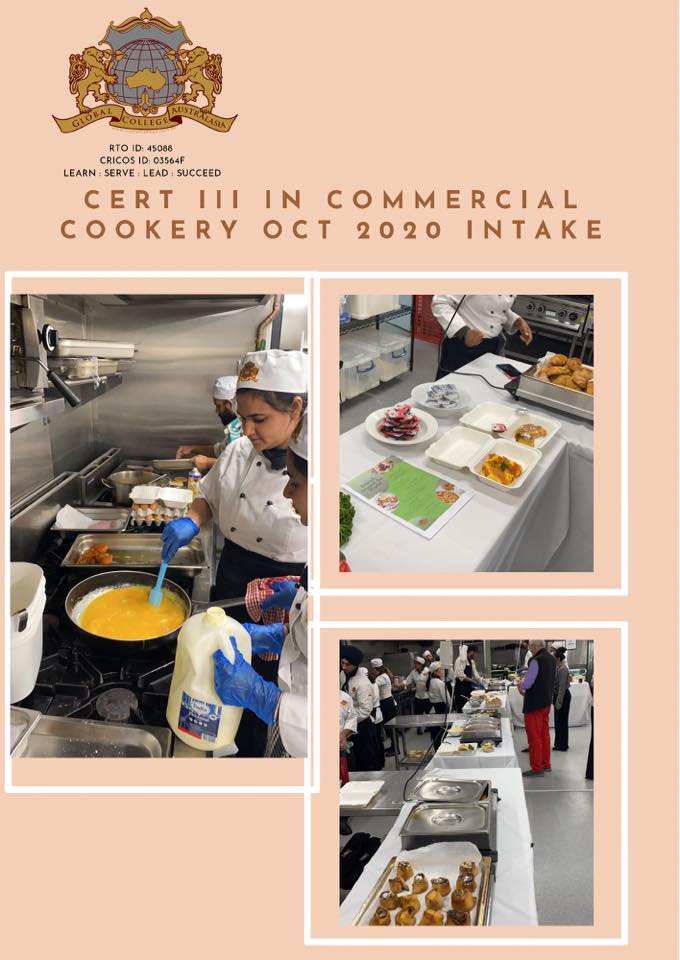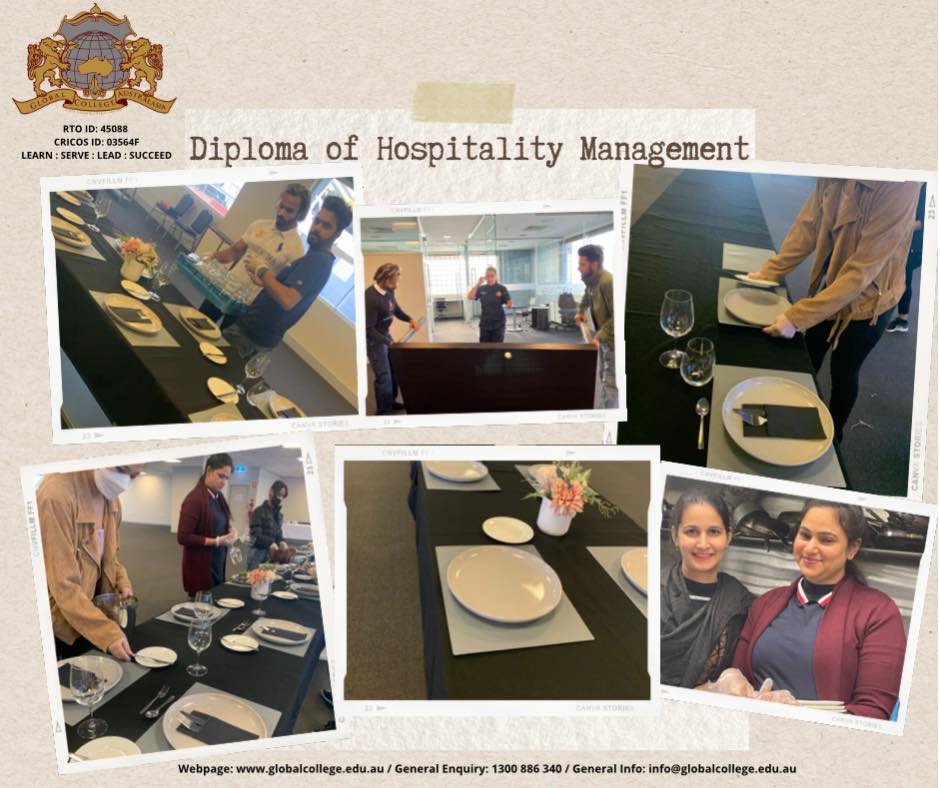Available courses
GCA’s LLN induction test is designed to:
- Identify any Language, Literacy and Numeracy issue which may arise in a student's VET courses
- Or to determine the level of General English in which to place an ELICOS General English student into (Beginner, Elementary, Pre-Intermediate, Intermediate).

GCA’s ELICOS General English (GE) course is designed for learners who want to develop and improve their English language skills and ability to communicate in social, work, and everyday, real‐life situations. It provides an excellent introduction to English for further academic studies, business, or recreation.
It aims to enhance learners’ understanding and use of English and increase their confidence and ability to express themselves and interact. Learners will improve their core skills of speaking, listening, reading, and writing, expand their knowledge and use of grammar, vocabulary, and language structures.
Enables learners to achieve English proficiency entry levels for pathway courses Learners are taught by qualified and experienced English teachers and class sizes are small to ensure individual teacher support.
Learner progress is consistently monitored throughout the course and with weekly testing to ensure learning outcomes are met.

GCA’s ELICOS General English (GE) course is designed for learners who want to develop and improve their English language skills and ability to communicate in social, work, and everyday, real‐life situations. It provides an excellent introduction to English for further academic studies, business, or recreation.
It aims to enhance learners’ understanding and use of English and increase their confidence and ability to express themselves and interact. Learners will improve their core skills of speaking, listening, reading, and writing, expand their knowledge and use of grammar, vocabulary, and language structures.
Enables learners to achieve English proficiency entry levels for pathway courses Learners are taught by qualified and experienced English teachers and class sizes are small to ensure individual teacher support.
Learner progress is consistently monitored throughout the course and with weekly testing to ensure learning outcomes are met.

GCA’s ELICOS General English (GE) course is designed for learners who want to develop and improve their English language skills and ability to communicate in social, work, and everyday, real‐life situations. It provides an excellent introduction to English for further academic studies, business, or recreation.
It aims to enhance learners’ understanding and use of English and increase their confidence and ability to express themselves and interact. Learners will improve their core skills of speaking, listening, reading, and writing, expand their knowledge and use of grammar, vocabulary, and language structures.
Enables learners to achieve English proficiency entry levels for pathway courses Learners are taught by qualified and experienced English teachers and class sizes are small to ensure individual teacher support.
Learner progress is consistently monitored throughout the course and with weekly testing to ensure learning outcomes are met.

GCA’s ELICOS General English (GE) course is designed for learners who want to develop and improve their English language skills and ability to communicate in social, work, and everyday, real‐life situations. It provides an excellent introduction to English for further academic studies, business, or recreation.
It aims to enhance learners’ understanding and use of English and increase their confidence and ability to express themselves and interact. Learners will improve their core skills of speaking, listening, reading, and writing, expand their knowledge and use of grammar, vocabulary, and language structures.
Enables learners to achieve English proficiency entry levels for pathway courses Learners are taught by qualified and experienced English teachers and class sizes are small to ensure individual teacher support.
Learner progress is consistently monitored throughout the course and with weekly testing to ensure learning outcomes are met.

This course was originally developed in conjunction with the regulatory authority and a consultant with extensive AQTF expertise. This course has been developed to provide skills and knowledge to individuals who wish to work in licensed premises. Whilst there have been several changes to the legislation since the course was developed the changes required to the course, to maintain relevance, are minimal.

This qualification reflects the role of cooks who use a wide range of well-developed cookery skills and sound knowledge of kitchen operations to prepare food and menu items.
Using discretion and judgement, they work with some independence and under limited supervision using plans, policies and procedures to guide work activities. Completion of this qualification is essential for recognition as a trade cook.
This qualification provides a pathway to work as a cook in organisations such as restaurants, hotels, clubs, pubs, cafes, and coffee shops.
No occupational licensing, certification or specific legislative requirements apply
to this qualification at the time of publication.

This qualification reflects the role of pastry chefs who use a wide range of well-developed patisserie skills and sound knowledge of kitchen operations to produce patisserie products. Using discretion and judgement, they work with some independence and under limited supervision using plans, policies and procedures to guide work activities.
This qualification provides a pathway to work in various organisations where patisserie products are prepared and served, including patisseries, restaurants, hotels, catering operations, clubs, pubs, cafés and coffee shops.
The skills in this qualification must be applied in accordance with Commonwealth and State or Territory legislation, Australian standards and industry codes of practice.
No occupational licensing, certification or specific legislative requirements apply to this qualification at the time of publication.

This qualification reflects the role of chefs and cooks who have a supervisory or team leading role in the kitchen. They operate independently or with limited guidance from others and use discretion to solve non-routine problems.
This qualification provides a pathway to work in organisations such as restaurants, hotels, clubs, pubs, cafes and coffee shops, or to run a small business in these sectors.
The skills in this qualification must be applied in accordance with Commonwealth and State or Territory legislation, Australian standards and industry codes of practice.
No occupational licensing, certification or specific legislative requirements apply to this qualification at the time of publication.

This qualification reflects the role of pastry chefs who have a supervisory or team leading role in the kitchen. They operate independently or with limited guidance from others and use discretion to solve non-routine problems.
This qualification provides a pathway to work in various organisations where patisserie products are prepared and served, including patisseries, restaurants, hotels, catering operations, clubs, pubs, cafés, and coffee shops.

This qualification reflects the role of highly skilled senior operators who use a broad range of hospitality skills combined with managerial skills and sound knowledge of industry to coordinate hospitality operations. They operate independently, have responsibility for others and make a range of operational business decisions.
This qualification provides a pathway to work in any hospitality industry sector as a departmental or small business manager. The diversity of employers includes restaurants, hotels, motels, catering operations, clubs, pubs, cafés, and coffee shops. This qualification allows for multiskilling and for acquiring targeted skills in accommodation services, cookery, food and beverage and gaming.
The skills in this qualification must be applied in accordance with Commonwealth and State/Territory legislation, Australian standards and industry codes of practice.

This qualification reflects the role of highly skilled senior managers who use a broad range of hospitality skills combined with specialised managerial skills and substantial knowledge of industry to coordinate hospitality operations. They operate with significant autonomy and are responsible for making strategic business management decisions.
This qualification provides a pathway to work in any hospitality industry sector and for a diversity of employers including restaurants, hotels, motels, catering operations, clubs, pubs, cafés, and coffee shops. This qualification allows for multi-skilling and for acquiring targeted skills in accommodation services, cookery, food and beverage and gaming.
The skills in this qualification must be applied in accordance with Commonwealth and State/Territory legislation, Australian standards and industry codes of practice.

This qualification reflects the role of individuals who apply highly specialised knowledge and skills in the field of organisational learning and capability development. Individuals in these roles generate and evaluate complex ideas. They also initiate, design and execute major learning and development functions within an organisation. Typically, they would have full responsibility and accountability for the personal output and work of others.

This qualification may apply to leaders and managers in an organisation where learning is used to build organisational capability. The job roles that relate to this qualification may also include RTO Manager and RTO Director.

This qualification reflects the role of individuals who apply specialised knowledge and skills, together with experience in leadership and management, across a range of enterprise and industry contexts.
Individuals at this level use initiative and judgement to plan and implement a range of leadership and management functions, with accountability for personal and team outcomes within broad parameters.
They use cognitive and communication skills to identify, analyse and synthesise information from a variety of sources and transfer their knowledge to others, and creative or conceptual skills to express ideas and perspectives or respond to complex problems.
